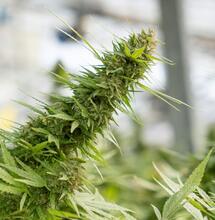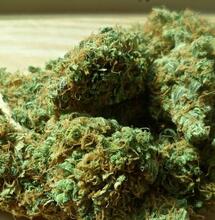Hemp and Cannabis in China

China is the world leader in hemp production. Fiber is at the center of the country's thriving hemp industry. Such focus is part of China's national strategy to replace cotton with other, more environment-friendly crops, in a bid to achieve net-zero carbon emissions. At the same time, Chinese authorities maintain a strict ban on high-THC flowers.
Some of the world's earliest evidence of hemp use comes from China. Hemp has been growing there for thousands of years, and the Chinese have utilized it for producing clothing, paper, rope, and fishing nets. In addition, cannabis seeds have been used in traditional Chinese medicine for nearly two millennia.
However, like most of the world during the 20th century, China outlawed the cultivation of hemp and cannabis plants. The ban lasted until 2010, but it merely took a decade before China emerged as global leader in hemp. The world's largest producer of hemp currently is China, and that will likely remain the case over the following years. Most of the hemp the country produces is exported; much of it is bought by the U.S.
According to New Frontier Data, 70% of the total global hemp fiber comes from two provinces in China, Heilongjiang in the country's north and Yunnan in the south. The value of the Chinese fiber market stood at $1.2 billion in 2018, and it has probably gone up since.
Most of China's hemp has been used for textile manufacture in the past. The Chinese entered the CBD market only recently, although it was a short-lived endeavor.
The period between 2018 and 2021 marks a time of unprecedented CBD boom in China. During these years, CBD was available for sale in cosmetic and beauty products, and the domestic market exploded. China's CBD market ceased after the government intervened with a ban on using hemp flowers, extracts, and oils in cosmetics. Outlawing CBD meant classifying the non-psychedelic cannabinoid as a "dangerous drug," the same as hard drugs such as heroin and cocaine. CBD's production, import, and export is now illegal and may cost a life in prison.
China's ban on CBD could be explained with the recent revival of "anti-drug" education campaigns in the country. These campaigns doesn't approve of cannabis-based beauty products and see their popularity as going against government policies aimed at youths.
Chinese authorities used several arguments to justify the ban on CBD. One is the lack of available THC tests to ascertain that hemp products contain less than 0.3% of the psychoactive cannabinoid. Second, that CBD can easily be substituted with other cosmetic ingredients familiar to customers. The ban put a hurdle to many CBD businesses, suddenly leaving them without an avenue to sell their cosmetic goods.
The same path was followed by Hong Kong, where there also used to be a thriving CBD market. The city's authorities further cited safety concerns, saying they fear CBD could easily be synthesized into delta-8 THC, the synthetic analog and milder version of delta-9 THC. Hong Kong authorities reportedly collected about 80,000 CBD products, such as skin-care creams, edibles, oils, and other health supplements, in special disposable boxes before activating the ban in February this year.
Overall, China has a harsh stance on drug use. You might have heard of fabulous Beijing parties where strangers pass around nice-smelling herbal cigarettes spiced up with some weed. However, getting caught with weed might get you into a great trouble with the law. The Supreme Court views drugs as "the real demon that destroys human nature."
China is also one of the few countries in the world that continue to practice capital penalties for drug smuggling. The penalties for simple possession are not that tragic. But the death penalty is a real possibility for major drug traffickers. According to Amnesty International, the Chinese authorities have executed thousands of capital penalties on drug-related charges over the last couple of years. Some of those cases have possibly dealt with cannabis.
Will China ever loosen its stance on marijuana? It's unlikely that something like that will happen anytime soon. One of the five "ill deeds" that the Chinese believe could corrupt a person is smoking drugs. The other four are excessive eating or drinking, gambling, and prostitution. All of these "ills" may threaten the prosperity and well-being of the person's whole family, and that's almost unforgivable thing to do. So, it's very much a cultural thing. For the most part, recreational use of drugs in China is just not seen in the same way as in Western societies.














